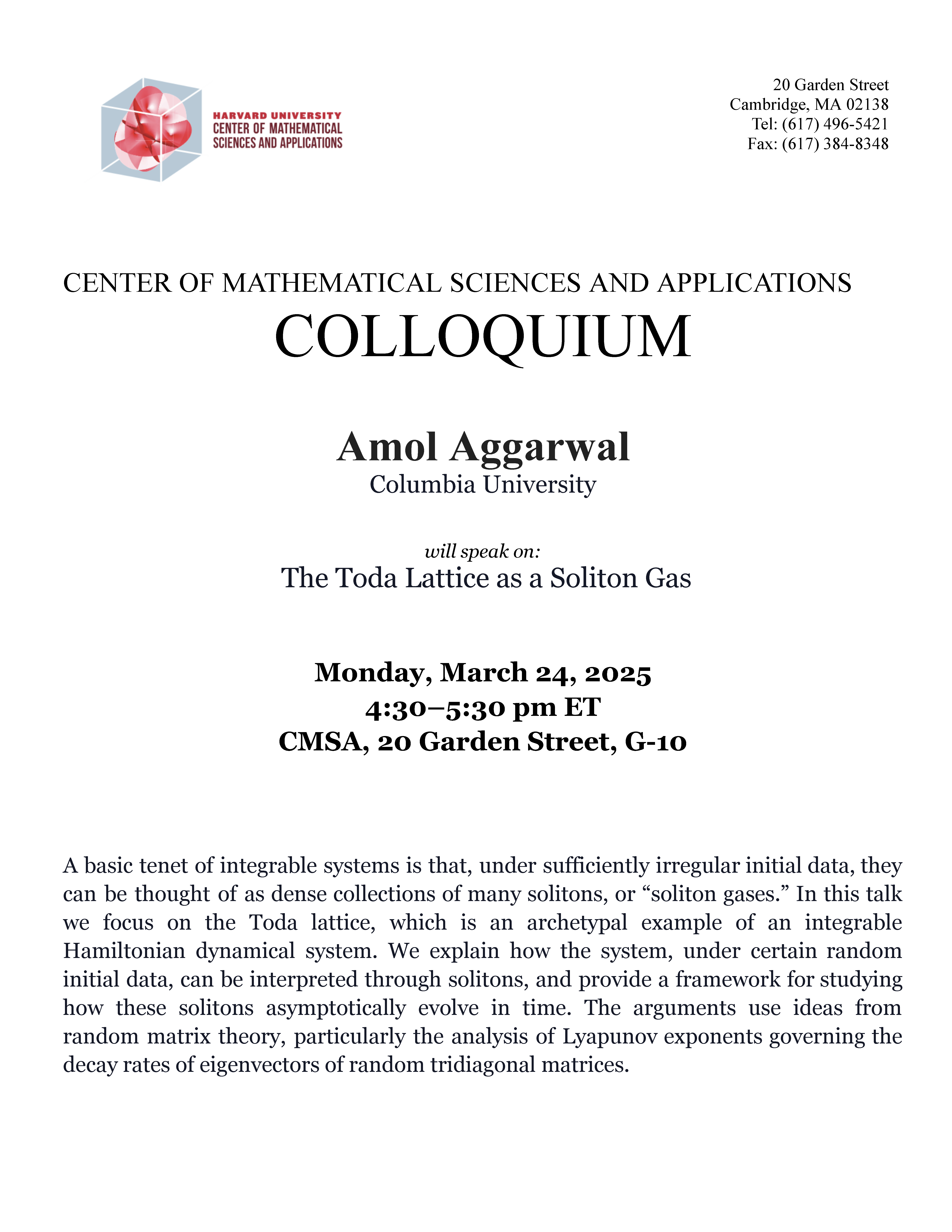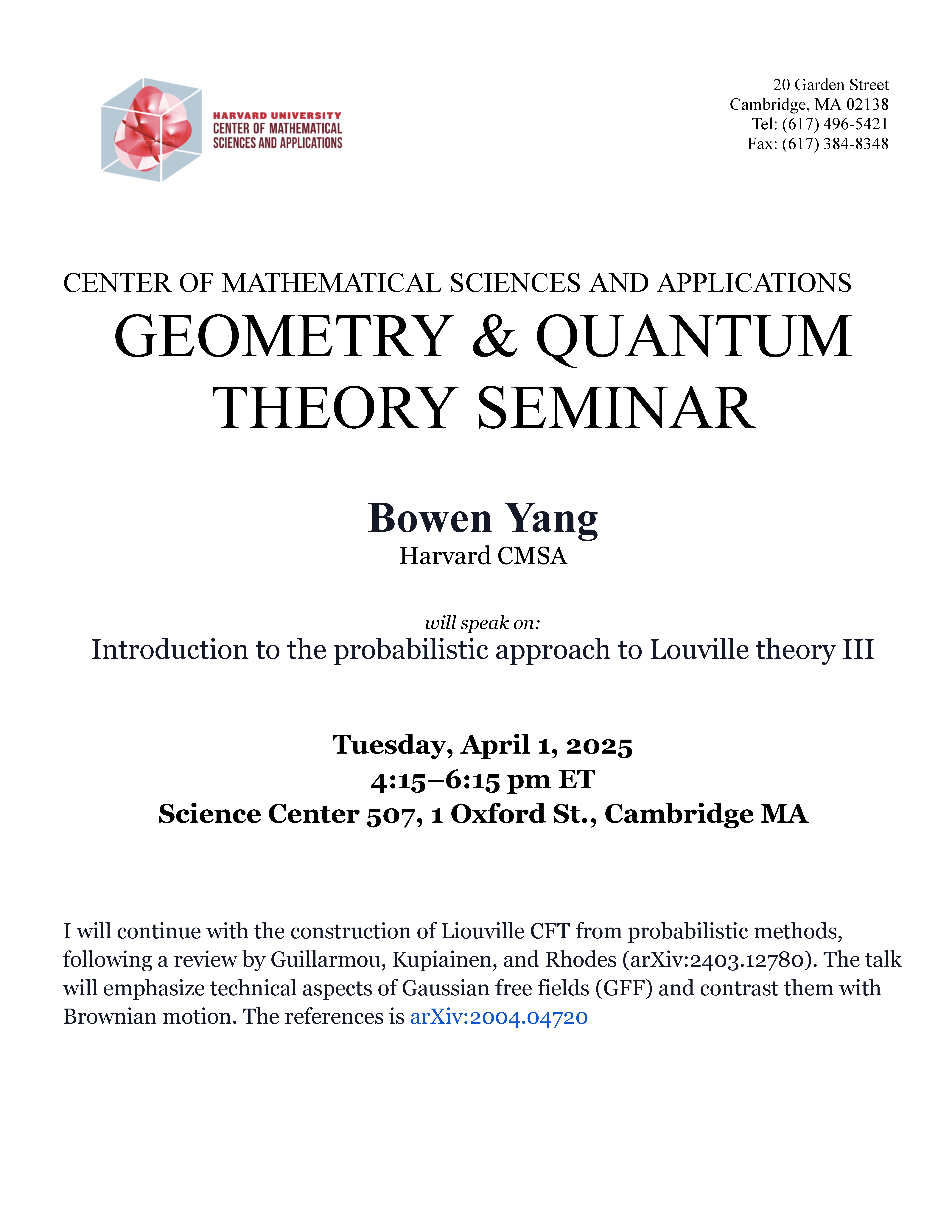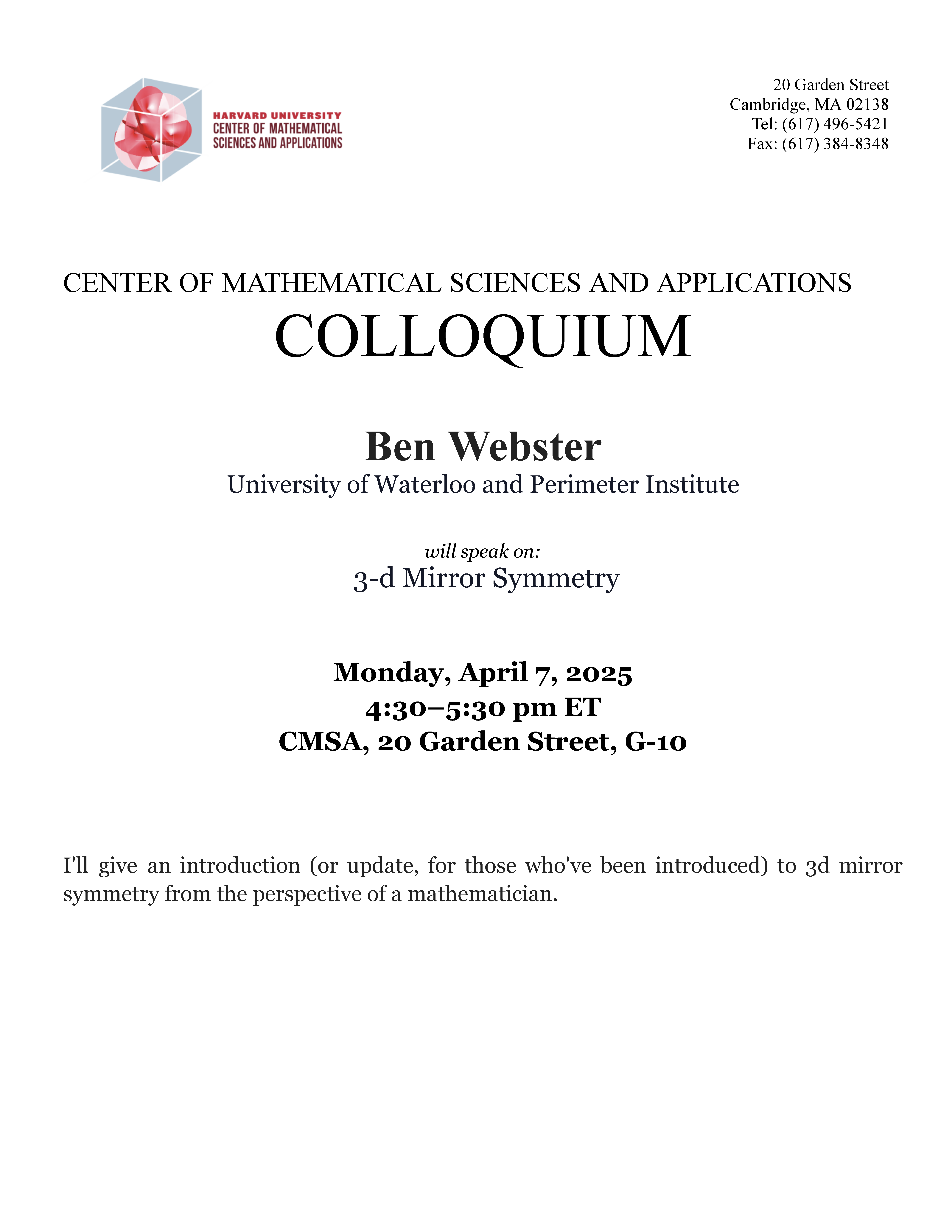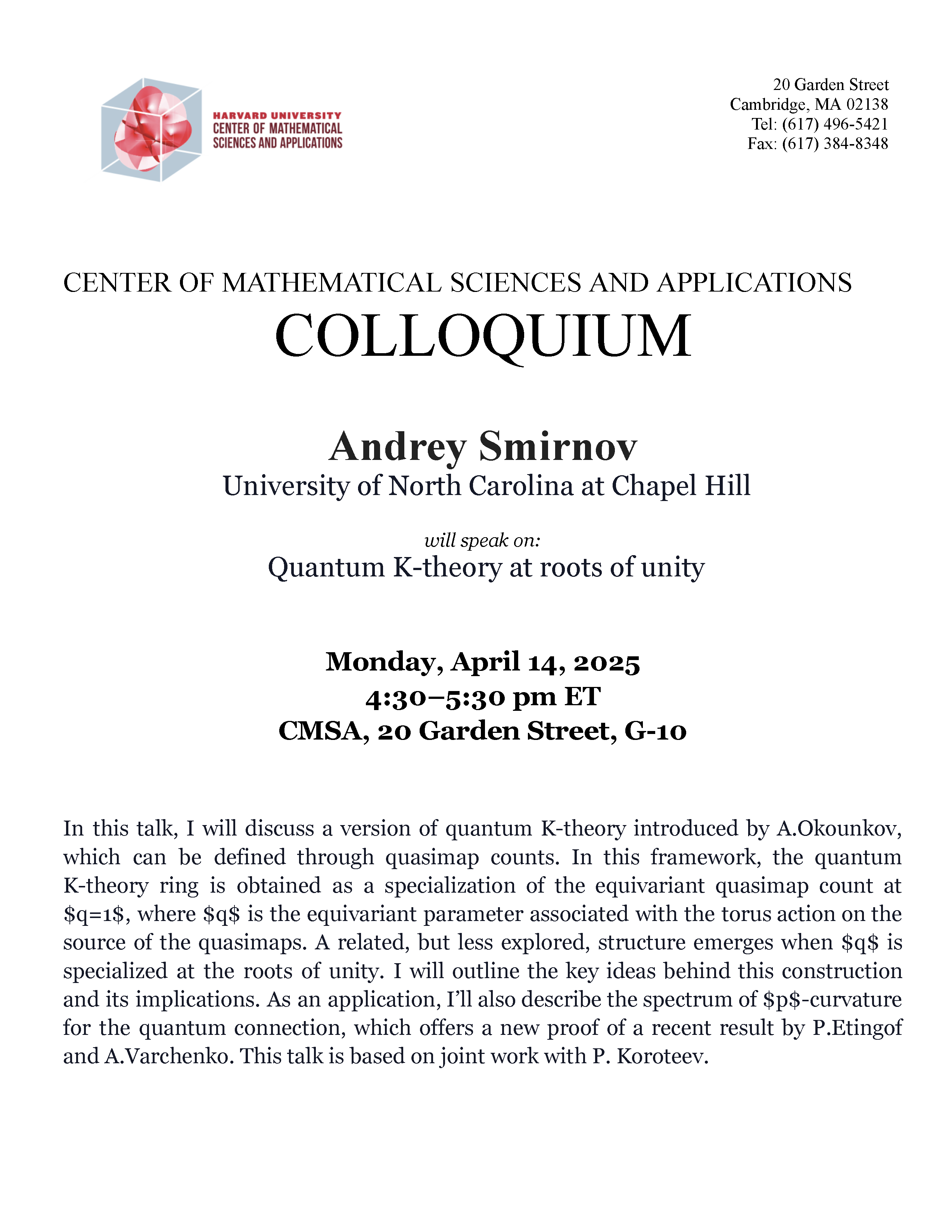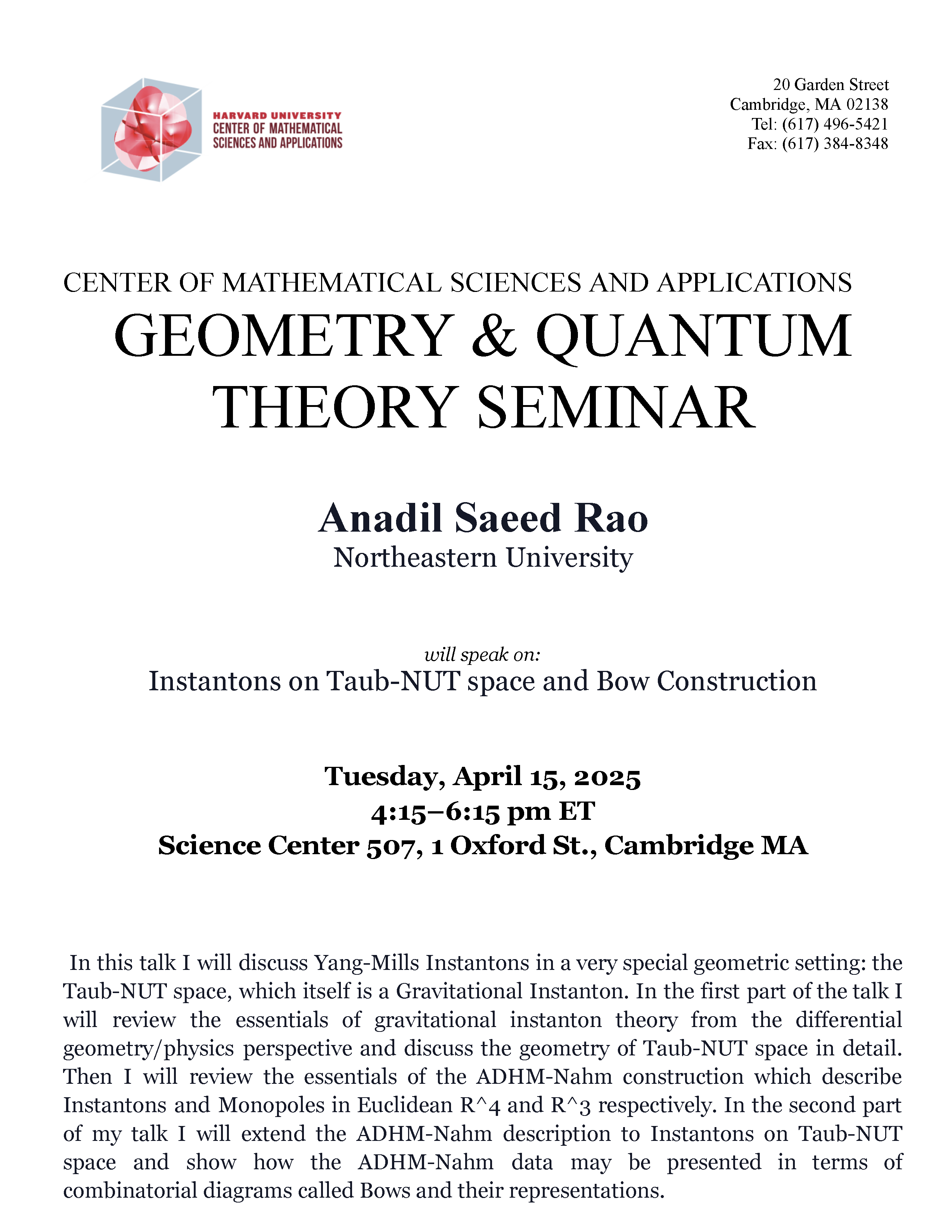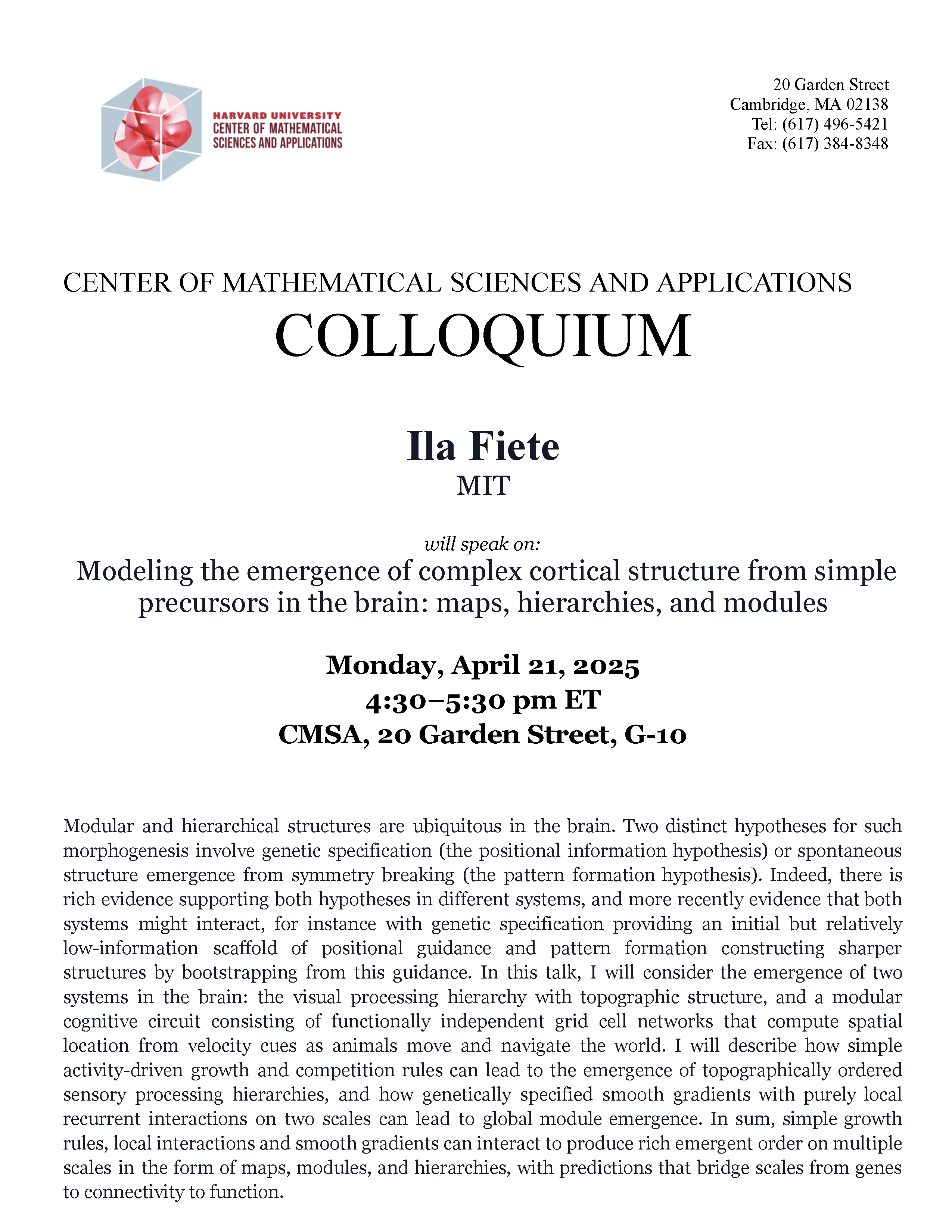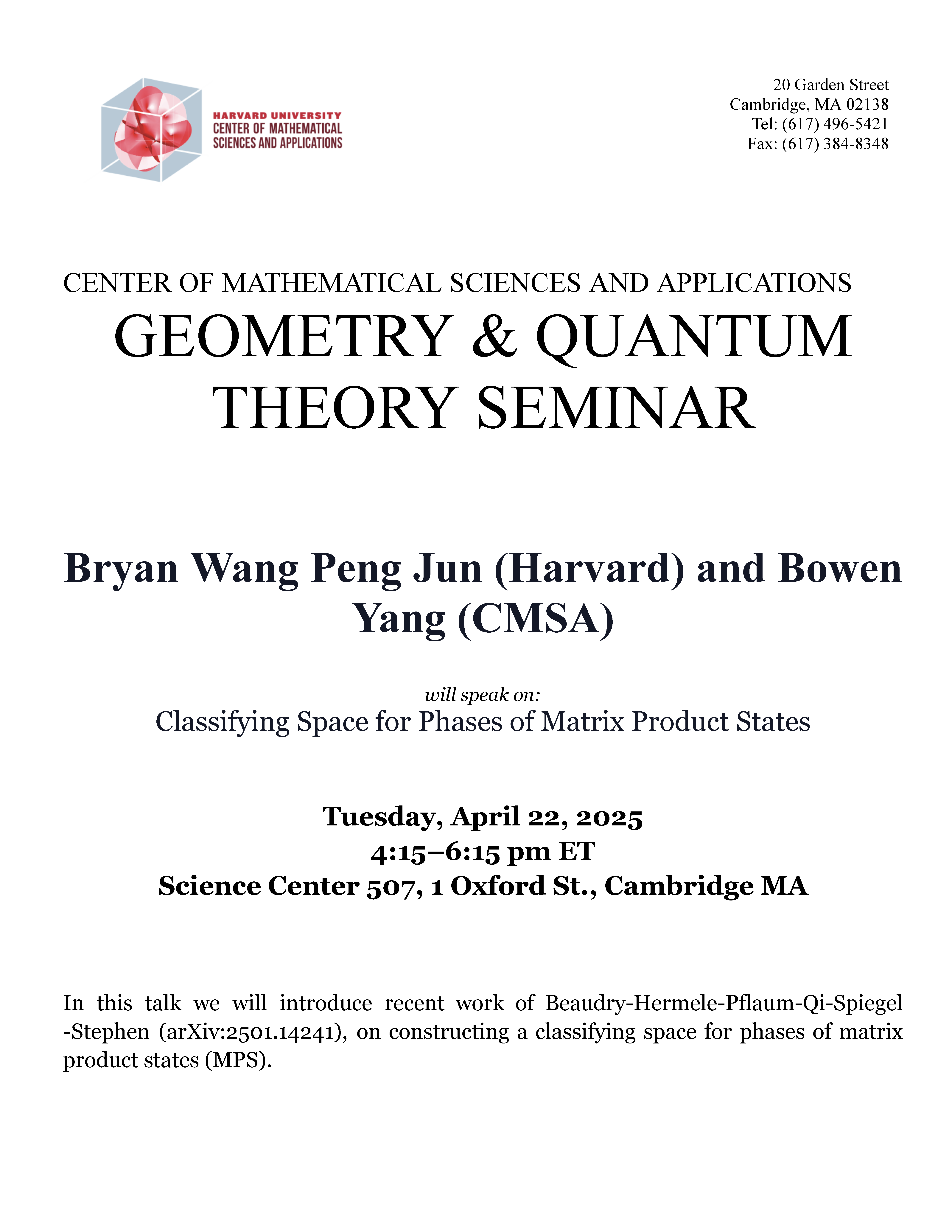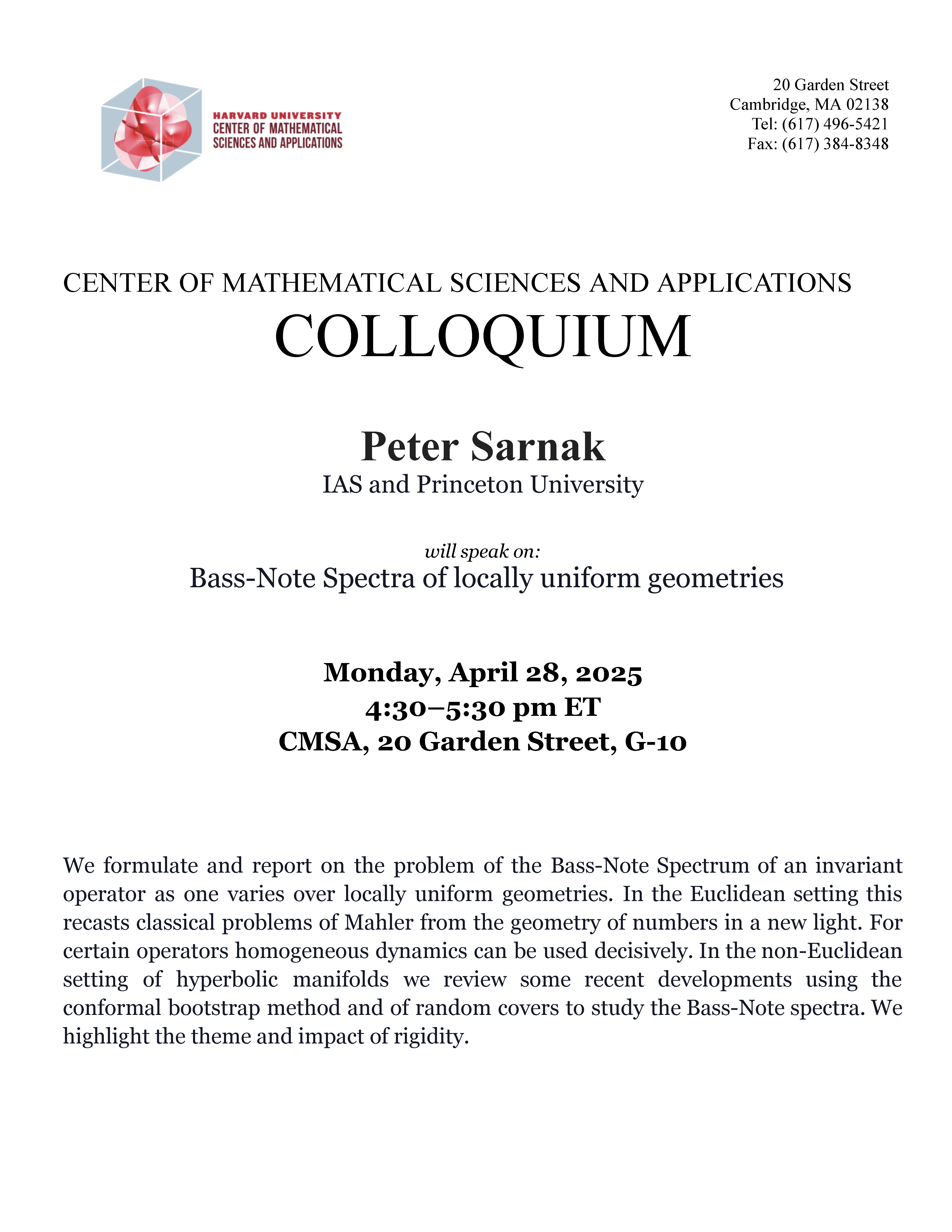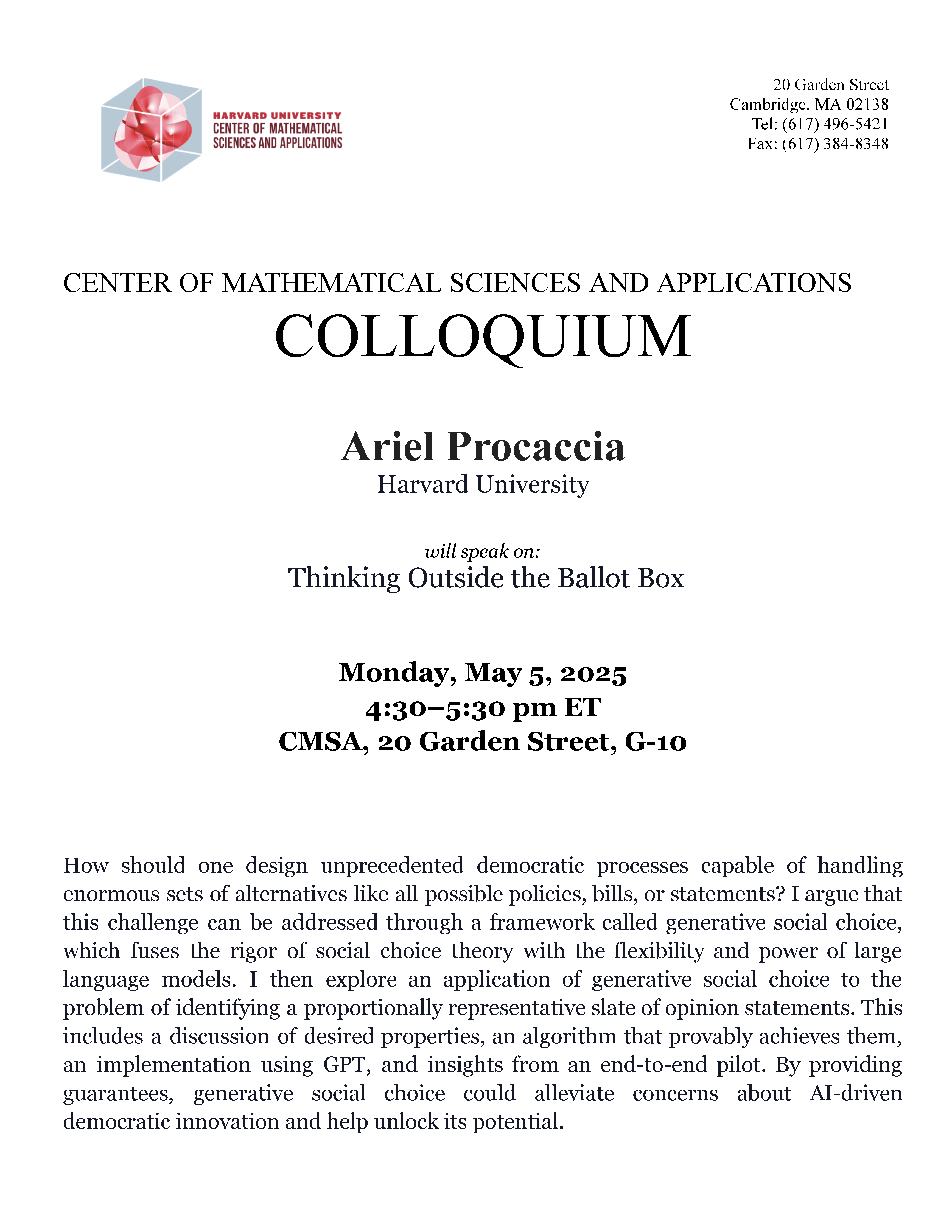
Large value estimates in number theory and computer science
CMSA Room G10 CMSA, 20 Garden Street, Cambridge, MA, United StatesColloquium Speaker: Larry Guth, MIT Title: Large value estimates in number theory and computer science Abstract: A large value estimate for a matrix M is a simple type of estimate in quantitative linear algebra. Estimates of this type appear in many parts of math, both pure and applied. One example is the large value problem for […]


